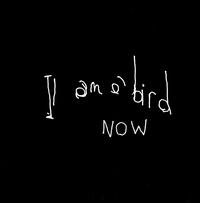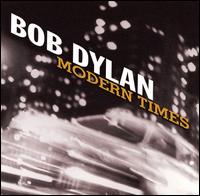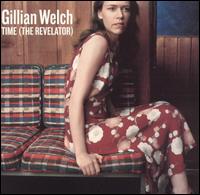My Top Albums of 2006 (pt 3 of 3)
Down to the final four. And so here they are.
#4: Gillian Welch - Hell Among the Yearlings

Well, I didn't say I couldn't have more than one. Darker and older than Time (the Revelator), this is Gillian at her best, singing songs with names like "The Devil Had a Hold of Me," "Whiskey Girl," "My Morphine," and "I'm Not Afraid to Die." If she had been born thirty years earlier, we be watching movies about her instead of June Carter.
#3: Margot & The Nuclear So & So's - The Dust of Retreat

I found Margot just browsing through emusic one day, and have been listening to their album ever since. Named after a Wes Anderson character, the word I've seen used most often to describe their sound is "chamber pop." They themselves call it "scarf rock." I would call it well crafted and complex songs with literate and sharp songwriting. It's a great album, and it's their debut. Definitely a band to keep an eye on.
#2: My Morning Jacket - Z

Reverb heavy pop/rock. What sets MMJ apart is their totally unique sound, effortless passion and Jim James' outstanding voice. I've got some of their older stuff off of emusic, but for this one you're going to need to head over to iTunes. Absolutely beautiful music. Why they aren't on the radio is beyond me.
#1 Sufjan Stevens - Live at Lee's Palace, Toronto, 16 Nov. 2004

Like I said, no one said I couldn't have more than one. I love Sufjan's albums, but somehow this captures him better for me. The sound is great, the crowd engaged but quiet, and he plays songs off of all three of his major albums: Seven Swans, Michigan and Illinois. Highlights: "50 States," which has this great line: "Go to New Hampshire, Missouri too--it's not Virgina, but it'll do"; a subdued version of "Chicago," and an essentially perfect rendition of "Romulous," which is my personal candidate for most underrated Sufjan song ever. This is the album that's kept me company more than any other this year--it's now nearly an old friend, and it's also a free download available here.
#4: Gillian Welch - Hell Among the Yearlings

Well, I didn't say I couldn't have more than one. Darker and older than Time (the Revelator), this is Gillian at her best, singing songs with names like "The Devil Had a Hold of Me," "Whiskey Girl," "My Morphine," and "I'm Not Afraid to Die." If she had been born thirty years earlier, we be watching movies about her instead of June Carter.
#3: Margot & The Nuclear So & So's - The Dust of Retreat

I found Margot just browsing through emusic one day, and have been listening to their album ever since. Named after a Wes Anderson character, the word I've seen used most often to describe their sound is "chamber pop." They themselves call it "scarf rock." I would call it well crafted and complex songs with literate and sharp songwriting. It's a great album, and it's their debut. Definitely a band to keep an eye on.
#2: My Morning Jacket - Z

Reverb heavy pop/rock. What sets MMJ apart is their totally unique sound, effortless passion and Jim James' outstanding voice. I've got some of their older stuff off of emusic, but for this one you're going to need to head over to iTunes. Absolutely beautiful music. Why they aren't on the radio is beyond me.
#1 Sufjan Stevens - Live at Lee's Palace, Toronto, 16 Nov. 2004

Like I said, no one said I couldn't have more than one. I love Sufjan's albums, but somehow this captures him better for me. The sound is great, the crowd engaged but quiet, and he plays songs off of all three of his major albums: Seven Swans, Michigan and Illinois. Highlights: "50 States," which has this great line: "Go to New Hampshire, Missouri too--it's not Virgina, but it'll do"; a subdued version of "Chicago," and an essentially perfect rendition of "Romulous," which is my personal candidate for most underrated Sufjan song ever. This is the album that's kept me company more than any other this year--it's now nearly an old friend, and it's also a free download available here.







